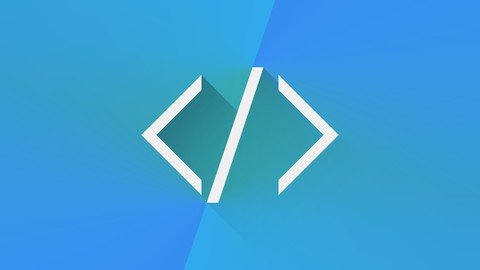Digital Systems By Services IEO 2023
Author: fullsoftcrack on 27-06-2023, 23:11, Views: 32
 Free Download Digital Systems By Services IEO 2023
Free Download Digital Systems By Services IEO 2023Published 6/2023
MP4 | Video: h264, 1280x720 | Audio: AAC, 44.1 KHz
Language: English | Size: 977.46 MB | Duration: 1h 52m
VHDL programming language full course.
What you'll learn
Learning Objective: Students will develop basic programming skills. Learning Outcome: Students will be able to write and debug simple programs.
Project timelines and budgets in computer science can vary greatly depending on the specific project, its scope, complexity, and resources available.
Computer science projects, like any other type of project, come with inherent risks that can impact their success. Understanding and proactively.
To effectively manage a computer science project and mitigate the risks involved, a structured approach should be followed.
Requirements
Since no programming experience required. Define the project's objectives, scope, and stakeholders. Identify the project's risks and constraints. Develop a project charter that outlines the project's purpose, objectives, and initial requirements. Planning: Create a comprehensive project plan that includes timelines, milestones, and deliverables. Identify and allocate necessary resources, such as personnel, equipment, and budget. Develop a risk management plan that identifies potential risks, their likelihood, impact, and mitigation strategies.
Description
In this course students will learn about Digital systems and how to implement a code on hardwares. We are using VHDL programming using Xilinx Vivado software and check the output of the code on screen through graph and schematic diagrams. VHDL (Very High-Speed Integrated Circuit Hardware Description Language) is a hardware description language commonly used in digital design and electronic circuitry. It allows engineers to describe and simulate the behavior of digital systems and design complex digital circuits.Here are some key points about VHDL:Purpose: VHDL is used for designing and describing digital systems at various levels of abstraction, from high-level system architecture to low-level circuit implementation. It enables engineers to model, simulate, and synthesize digital designs.Syntax and Structure: VHDL follows a concurrent programming model, where multiple processes can execute concurrently. It has a strict syntax and uses keywords, data types, and operators for describing digital circuits and their behavior.Modeling Digital Systems: VHDL allows engineers to describe the behavior of digital systems through the use of concurrent statements, process statements, and signal assignments. It supports the modeling of combinatorial logic, sequential logic, and complex digital circuits.Simulation and Testing: VHDL supports simulation, which allows engineers to verify and validate their designs before actual implementation. Simulation tools can simulate the behavior of digital circuits and test their functionality under different scenarios.Synthesis: VHDL designs can be synthesized into actual hardware implementations. Synthesis tools analyze the VHDL code and generate equivalent hardware descriptions, such as gate-level netlists or register-transfer level (RTL) designs that can be used for physical implementation.Design Hierarchy: VHDL supports hierarchical design, allowing engineers to break down complex systems into smaller, manageable modules. These modules can be interconnected to create larger digital systems.Reusability: VHDL promotes design reusability by allowing engineers to create parameterized and generic designs. Modules or components can be designed in a generic manner, enabling easy reuse in different projects or system designs.Verification and Debugging: VHDL provides constructs for testbench development, allowing engineers to create stimulus and monitor the behavior of their designs during simulation. Testbenches help in the verification and debugging of digital systems.VHDL is widely used in various industries, including telecommunications, aerospace, automotive, and consumer electronics. It enables engineers to design, simulate, and implement complex digital systems, ranging from small integrated circuits to large-scale systems-on-chip (SoCs).
Overview
Section 1: Introduction
Lecture 1 Introduction
Lecture 2 What is VHDL?
Section 2: Installation
Lecture 3 Download & Installation Criteria
Section 3: Xilinix Vivado User Guide
Lecture 4 Introduction to Vivado?
Section 4: Projects as Beginner.
Lecture 5 First Project on AND gate. Half Part
Lecture 6 Second Project on AND gate. Half Part
Lecture 7 Project on OR gate.
Lecture 8 Product of Sum
Section 5: Intermediate Projects
Lecture 9 Boolean Expression code.
Lecture 10 Multiplexer 2X1
Lecture 11 XOR gate part 1
Lecture 12 XOR gate part 2
This course is for IOT learners to go in the field of IOT through PLC programming and VHDL which is very high speed hardware description language.
Homepage
https://www.udemy.com/course/digital-systems/
Buy Premium From My Links To Get Resumable Support,Max Speed & Support Me
Links are Interchangeable - Single Extraction
Comments

